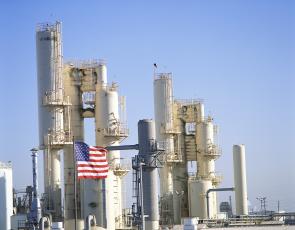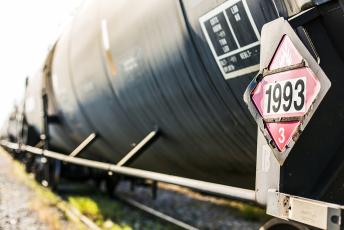A duo of strong storms that swept through the United States has temporarily disrupted domestic fuel markets, but effective responses by the private and public sectors have limited the fallout from Hurricanes Harvey and Irma for Americans who need fuel critical for commerce.
Harvey affected 24 refineries that normally churn out a quarter of U.S. fuels. Twenty of those plants have resumed operations, some only partially, since shutting down as a precaution to limit damages to equipment and infrastructure. Four refineries have not yet restarted. They should be able to do so after safely ensuring the integrity of their machinery, power and transportation systems.
The relatively quick return of fuel manufacturing days after Harvey – only about 4 percent of U.S. refining capacity is currently closed, down from 25 percent – is a testament to refiners’ commitment to producing and supplying fuels the are critically important to the American economy.
Some refiners even managed to resume pipeline shipments of fuel to the Southeast before the arrival of Irma in Florida over the weekend.
Workers at refineries, ports, and pipelines, many of whom were personally affected by the storm, went to extraordinary lengths to help get infrastructure operating again.
In Florida, market participants that run marine terminals, railroads and trucking operations also staged several days of extra fuel supplies ahead of Irma’s arrival to begin distribution work after it passed. Ports, crucial to meeting Florida’s fuel needs, have reopened and are receiving tankers. This is good news for Floridians and will help facilitate rebuilding efforts.
What’s more, there has been heightened coordination between government and the private sector, a shift that stems from new, more effective response protocols introduced after Hurricane Katrina. Anecdotally, participants say coordination has improved from previous years.
To attend to areas impacted by supply disruptions, the government temporarily waived fuel standards requiring the sale of summer blend gasoline. This move aimed to effectively help fuel reach markets faster by allowing market participants to tap other stocks in storage. Federal authorities also temporarily waived certain trucking regulations to help facilitate resupply efforts for Florida.
As market participants tapped storage terminals in New York Harbor or the Gulf Coast to send fuel to Florida by sea ahead of Irma, the government also took the relatively rare step of temporarily waiving the Jones Act, a century-old law that requires domestically shipped products be carried on U.S.-built, U.S-flagged vessels, by U.S. workers. This reprieve allows foreign-flagged vessels, along with U.S. ones, to also potentially carry fuel to the Southeast in the days after Irma and to curb any supply shortages as fast as possible.


